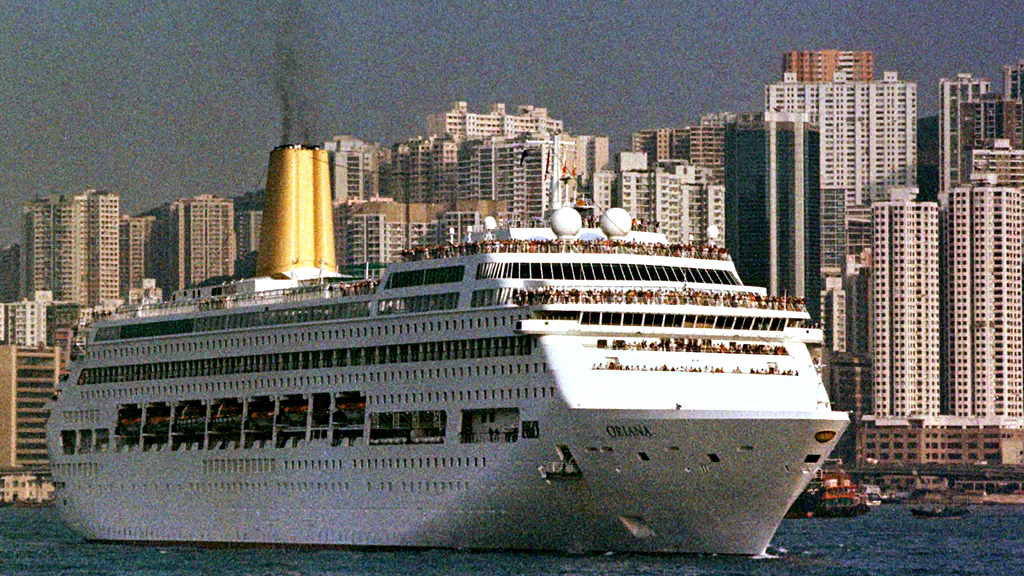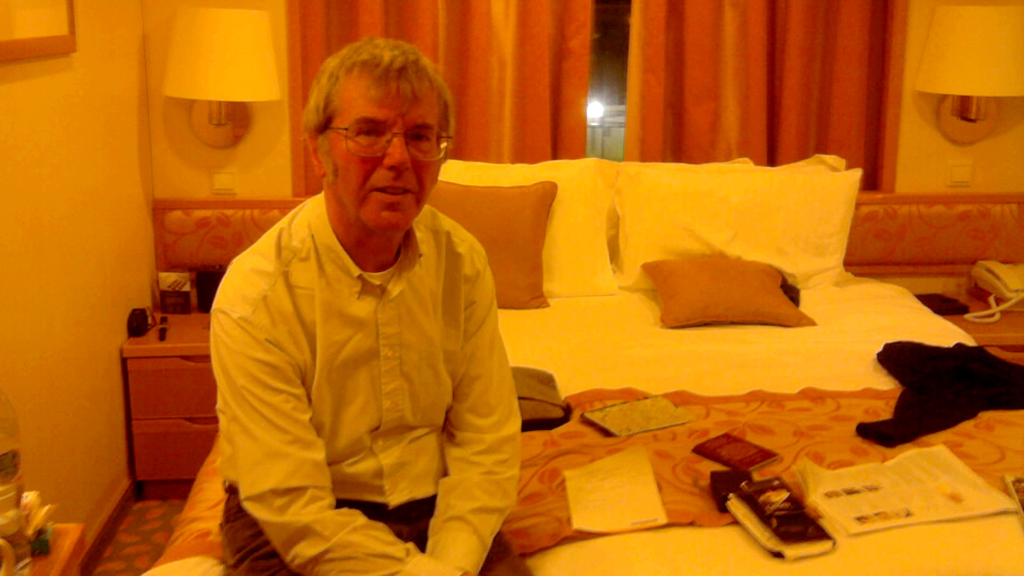Norovirus: winter vomiting bug hits nearly 400 on cruise
Passengers collapsing, restaurants shut down and toilets smelling of vomit: 378 people on the luxury cruise ship Oriana are struck by norovirus, as reports of the bug rise by 72 per cent this season.

It was supposed to be a luxury cruise around the Baltic Christmas markets. But the 10-night trip on P&O’s Oriana has turned into a nightmare holiday for some, as 378 passengers and crew were struck down with the winter vomiting bug, known as the norovirus.
The cruise ship left Southampton on 4 December with 2,644 passengers and crew aboard. A “code red” was established the following day resulting in restricted facilities, cancelled events and some passengers confined to their cabins.
Empty places at dinner on the cruise have become the norm as some are forced to stay in bed with vomiting and diarrhoea, passengers told Channel 4 News, with one saying the trip had turned into a “holiday from hell”.
It puts a big dampener on everything. You’re afraid to leave the ship in case you’re struck down. Paul Gilman, Oriana passenger
But unfortunately the experience of those on board the Oriana, who have paid up to £2,889 each, is not unusual this year which has seen a stark rise in the number of reported cases of norovirus.
The most recent figures from the Health Protection Agency show a 72 per cent rise in the number of reports of the virus, compared to the same period last year. Three-quarters of a million people are thought to have contracted the disease already this year.
Other cruise ships affected this year include the Celebrity Cruises’ Constellation, on which 350 passengers fell ill, the MS Bellriva, which was sailing on the River Rhine and the Crown Princess in the United States.
P&O did not have figures for the total number of being affected by outbreak, but Southampton port health authority told Channel 4 News the total figure was 378.

Holiday ‘dampener’
Paul Gilman (pictured), from Wiltshire, who had a mild form of the illness and is still on board the Oriana, said that people had collapsed on deck.
“They discourage you from using public bathrooms, they’ve closed buffet facilities, dining rooms are about 20 per cent empty seats,” said Mr Gilman, speaking from the ship in Hamburg. “It’s the absence of people from normal life or disappearing suddenly from the dinner table.
“It puts a big dampener on everything. You’re afraid to leave the ship in case you’re struck down.”
The outbreak has resulted in less flexibility at mealtimes and cancelled entertainment events. Denise Weston, 60, told Channel 4 News that it was the worst cruise she has been on, out of 40 to 50 sailings.
Read more: Norovirus: the key questions
“We’re sailing in temperatures of minus 10 [degrees celsius]. It does bother me if I can’t come back at night and get a hot meal,” said Ms Weston, an accounts manager, who is on board with her husband.
“We paid good money for this,” she added.
When they arrived on the ship at Southampton on 4 December, passengers were warned by a letter left in their cabin that there had been an outbreak of norovirus on the previous sailing.
The ship left the harbour later that day. But Southampton’s port health authority assured Channel 4 News that proper procedures were followed and that the most recent outbreak was more likely to be a result of a new passenger carrying the virus on board.
What is norovirus?
“Norovirus isn’t called winter vomiting bug for nothing,” write Science Editor Tom Clarke. “Though it occurs year round widespread outbreaks of the virus are most common in cold weather. Scientists aren’t precisely sure why the virus prefers the winter – but it is thought the bug finds it easier to spread. In winter people tend to spend more time indoors in close proximity to one another increasing the chance an infected person passes it on to a new host. Also, viruses like norovirus that are spread by contact may survive for longer outside of the body during winter. Lower temperatures and lower levels of sunlight mean viruses may break down more slowly on contaminated surfaces like doorhandles taps and toilet flushes.
“Though norovirus is particularly unpleasant it rarely causes serious harm. Doctors advise drinking plenty of fluids to stay hydrated until the disease runs its course. Elderly or frail people can be more at risk of dehydration. Hospitals often handle patients coming to them with suspected norovirus with caution because of the risks of the bug getting into the hospital and spreading through acute wards.”
‘Common occurence’
The ship is obliged to notify the port of an infection within 24 hours of arrival, and the ship and terminal, especially cabins of those affected, are then thoroughly cleaned before new passengers get on board – a process that takes up to two hours, said Rosie Zambra, regulatory services manager at Southampton port.
“It is a very common occurrence at this time of year,” she said. “There’s an outbreak control procedure and that was followed.”
Ships are obliged to declare an infection of an infectious disease if more than 2 per cent of people on board are affected.
At its peak on day three of the trip, the number of people who contracted the virus rose to 164, but the number had dwindled since then to eight reported cases on 12 December. If the numbers of cases had continued to rise, health authorities would have had to take more drastic measures, Ms Zambra added.
P&O admitted that extra cleaners were hired when the ship docked at Copenhagen to help deal with the outbreak.
‘Holiday from hell’
A review left on the website, Holiday Watchdog, called the trip a “nightmare” and named the review, “holiday from hell”. A disabled passenger going by the name of Andrea, alleged that staff were already suffering from the virus when passengers boarded in Southampton, and that the corridors and toilets smelt strongly of sick.
“Our trip has been a nightmare, and we just wish we had never booked,” she wrote. “After settling into our cabin we discovered from fellow passengers who had been on the previous Canary/Africa cruise 16 November to 4 December that the ship had norovirus.”
P&O told Channel 4 News: “Enhanced sanitation protocols have already been implemented to help minimize transmission to other passengers.
“The safety and comfort of passengers and crew is always our number one priority. As is currently standard procedure across our fleet, all the ship’s passengers were provided with a precautionary health notice advising of widespread norovirus activity and the health measures to avoid contraction and spread, both on board and whilst ashore.”
John Harris, an expert in norovirus at the Health Protection Agency called on people to be “vigilant”.
“Having a norovirus infection is very unpleasant but it is short-lived and most people will fully recover in a couple of days,” he said. “Make sure that you or anyone you are caring for takes plenty of fluids to avoid dehydration. Over-the-counter medicines can also be useful in reducing headaches and other aches and pains”.